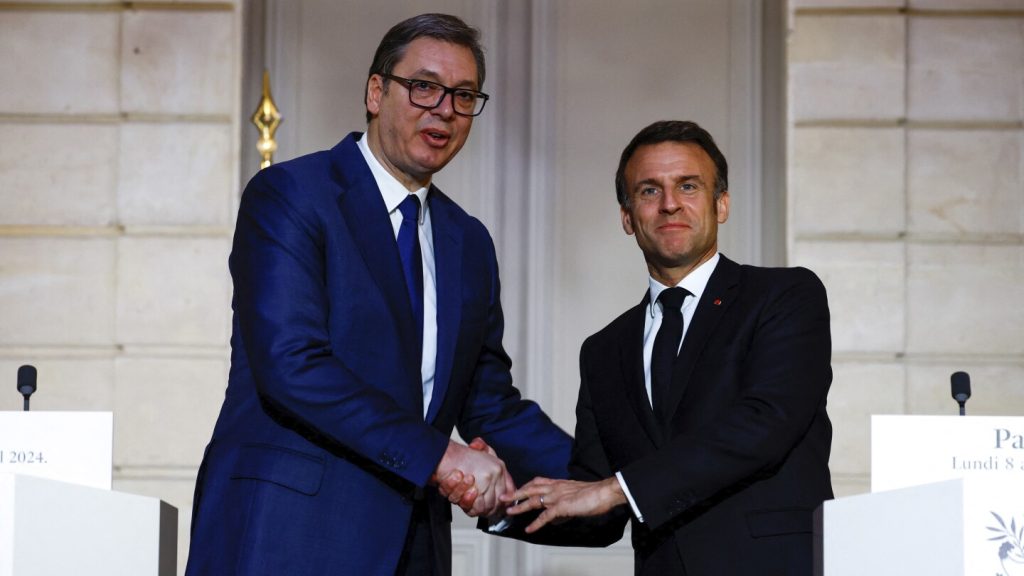Serbia is on the verge of finalizing a deal to purchase 12 French Rafale multi-purpose fighter jets, a significant shift from its usual military supplier Russia. President Aleksandar Vucic made the announcement during his visit to Paris, where he engaged in discussions with French President Emmanuel Macron and defense officials from Dassault Aviation, the manufacturer of the Rafale jets. Vucic revealed that he had productive conversations with Macron, resulting in concrete agreements for the purchase of the fighter jets. Contracts are expected to be signed in the coming months, with the deal estimated to be around 3 billion euros for the entire package.
The potential acquisition of the Rafale jets would allow Serbia to modernize its air force, which currently consists mainly of Soviet-made MiG-29 fighters and aging Yugoslav combat aircraft. This move signifies a departure from Serbia’s traditional reliance on Russia for military aircraft and equipment. While Russia has been a long-standing supplier of military aircraft to Serbia, the country’s decision to purchase French jets could have implications for regional security, particularly given the historical tensions in the Balkans region.
The rapid military build-up by Serbia has raised concerns among neighboring countries, especially those that are NATO members. Serbia’s refusal to join international sanctions against Russia, combined with its potential acquisition of sophisticated French jets, has sparked fears of possible military intervention by the Serbian government in neighboring Kosovo. The unresolved issue of Kosovo’s independence declaration in 2008, which Serbia does not recognize, adds to the complexity of the situation. Critics of the Western arming of Serbia argue that the sale of advanced aircraft could embolden Vucic to take military action in Kosovo.
During his discussions with Macron, Vucic also addressed the simmering tensions in Kosovo, highlighting the need for cooperation and dialogue to prevent further escalation. The two leaders also explored other areas of collaboration, including nuclear technology and the possibility of constructing a nuclear power plant in Serbia. These discussions underscore the multifaceted nature of Serbia’s relationship with France, beyond just the purchase of military equipment. As a candidate for European Union membership, Serbia’s strategic partnerships and foreign policy decisions are closely scrutinized by both regional and international stakeholders.
The purchase of the Rafale jets represents a significant investment in Serbia’s defense capabilities and signals the country’s ambition to modernize its military infrastructure. The deal with France is expected to enhance military cooperation between the two nations, opening doors for future collaboration in various sectors. As Serbia navigates its position in a complex geopolitical landscape, the decision to diversify its military procurement and engage with new partners reflects a strategic shift in its foreign policy. The upcoming signing of contracts for the Rafale jets marks a milestone in Serbia’s defense modernization efforts and underscores the evolving dynamics of regional security in the Balkans.


